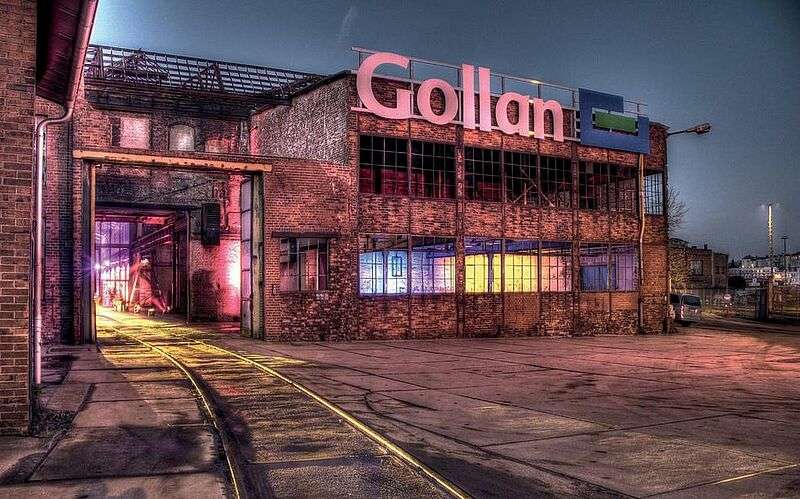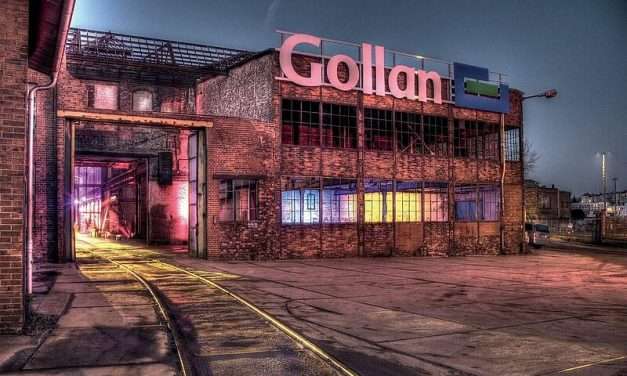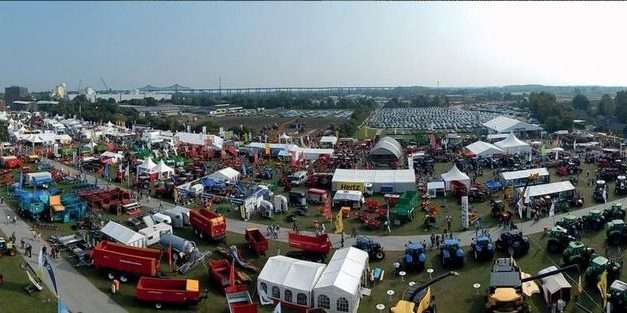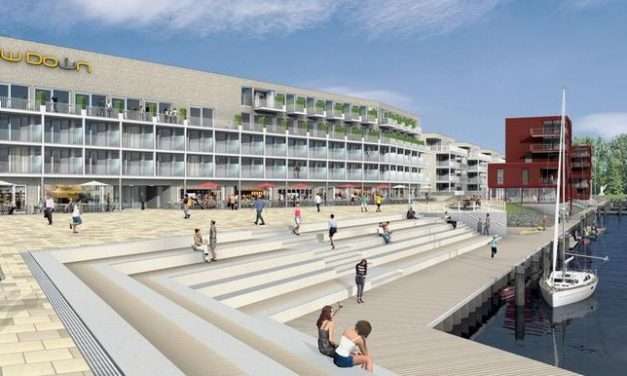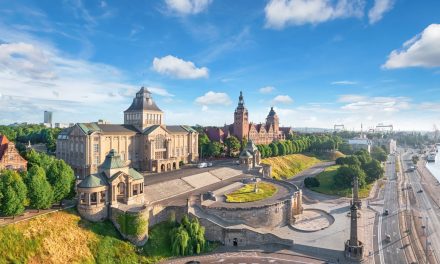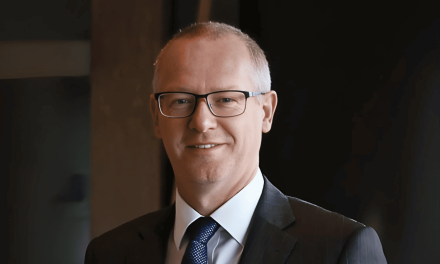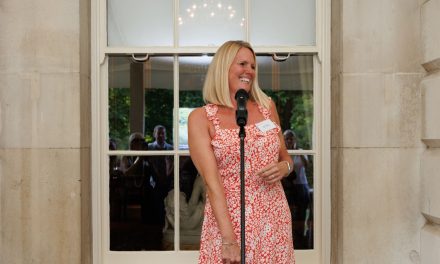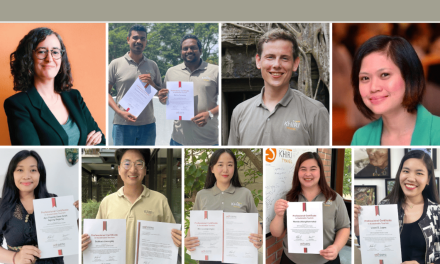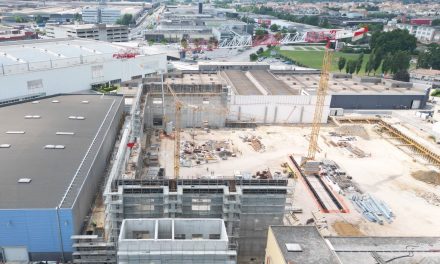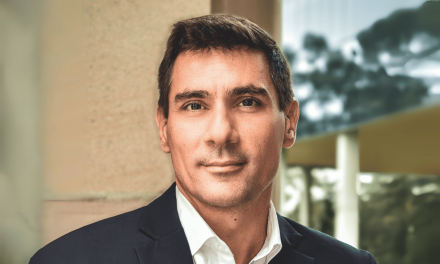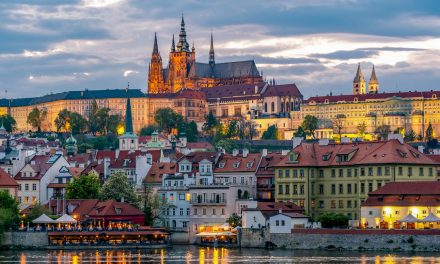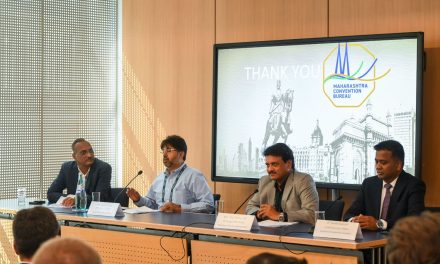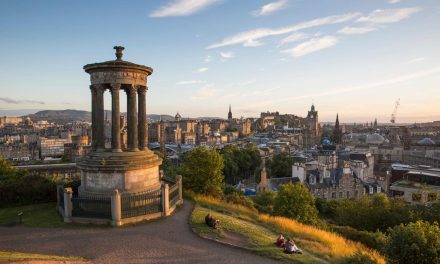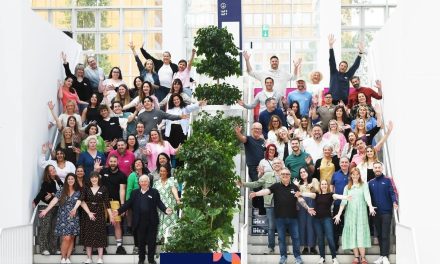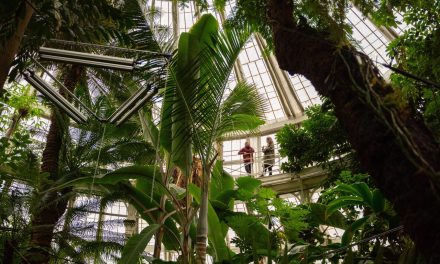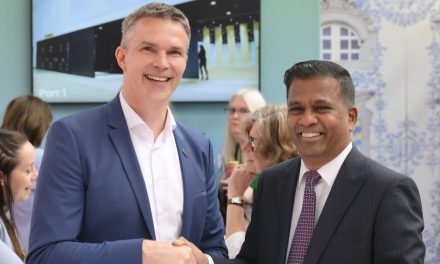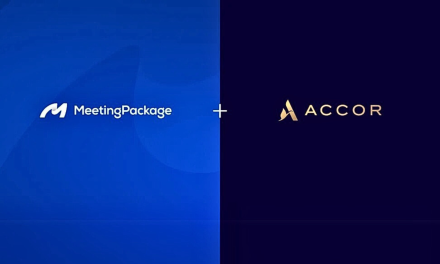Close to the wind. It might be the essence of Schleswig-Holstein (SH): an often stiff breeze that clears the head and makes you fill your lungs with deep breaths. The air is fresh and generally slightly salty, with a hint of mown grass and cattle – particularly during Norla, the annual North German agricultural show that takes place in September at Messe Rendsburg. The 570 exhibitors from ten countries at the 69th Norla in September welcomed 70,000 visitors. That’s a good outcome: “We had eight months of rain and then four months of drought – a fatal combination,” observes Stephan Gersteuer, General Secretary of the Schleswig-Holstein Farmers’ Association and Managing Director of Messe Rendsburg. Many were left with little appetite to find out about new agricultural equipment.
Nevertheless, the show still drew plenty to the Grüner Kamp agricultural centre in Rendsburg, a town of 30,000 people. Visitors find accommodation within an hour or more of Rendsburg, which includes Kiel, Flensburg, Lübeck, Husum and Neumünster – and a bus service is laid on. The 27,500 sqm exhibition centre in Husum operates in a similar way, welcoming around 650 exhibitors and 18,000 visitors to the biennial Husum Wind trade fair and convention. Husum has a castle and a population of only 23,000. Even smaller is Wacken, a village with a population of 2,000, yet it hosts one of the world’s largest heavy metal festivals: Wacken Open air attracts 70,000 fans a year. Many camp in the surrounding fields, which become temporary campsites.
At the 63rd Nordbau, “northern Europe’s largest compact construction fair”, which attracts 63,800 visitors and 800 exhibitors from 13 countries, there is no need to camp. The fair is held at the Holstenhallen in Neumünster, where distances are short. “Three years ago we completely renovated the buildings and built a new foyer,” says Managing Director Dirk Iwersen. Besides Nordbau and its accompanying 53-event convention, the venue also hosts Germany’s largest ball, attended by 6,000 guests, the THW Kiel handball tournament and numerous company AGMs. 23 teams took part in the state’s first BBQ championships at Nordgrill 2018. “The jury had 700 dishes to try,” enthuses Iwersen.
That whets the appetite: “Our exhibition centres, convention centres, hotels and special venues drew in 6.38 m people for 77,000 events last year,” reports Dr Bettina Bunge, Managing Director of Tourismus-Agentur Schleswig-Holstein (TASH). With over 20 years of experience in the meetings industry, Bunge is convinced of the region’s MICE potential. One of the first things she did at TASH was to establish a convention bureau. She is delighted at the level of investment in the infrastructure, “particularly the modern hotels, some with conference facilities on the North Sea and Baltic Sea coasts”. There is plenty more in the pipeline in Germany’s northernmost federal state. In Kiel, the capital, the hotel industry is making good progress. Capacity is set to grow by 1,150 rooms in the next three years: the 164-room 4-star Lindner “me and all hotel” and 208-room 3-star Hampton by Hilton at the Sparkassen-Arena will be completed by the end of 2019. An Ibis Styles and an Adagio access with a total of 239 rooms are opening next summer. This year sees the opening of the Atlantic Budget Hotel (146 rooms) and at the start of November the 113-room Niu Welly, a Novum hotel. The Niu has a maritime theme throughout. And as for the name, wellies can be a good choice of footwear in Schleswig-Holstein. There is also plenty of other investment. Kiel Castle is to be completely renovated and may also get a new convention hall. A second cruise ship terminal (of 3,700 sqm) is being built at the Ostseekai, where the first events should be held by the early summer of 2019. In Molfsee near Kiel, there will be a new exhibition building with a large conference room at the open-air museum by 2020.
The Buddenbrookhaus, a literary museum in Lübeck, is to be extended starting in 2019 at a cost of 18 m euros. Behind the two historic facades, built in 1758, a modern 2,500 sqm museum will be built. Thilo Gollan is investing in a further historic complex in Lübeck: since 2015 he has been converting a former shipyard into a regional cultural centre. “I want the Kulturwerft to be a lighthouse project for northern Germany,” says Gollan, who owns the recycling, building and property company of the same name. He discovered the redbrick halls, which date back to 1870, in one of the state’s oldest industrial areas when looking for a venue for the company’s 60th anniversary celebrations in 2015. The Schiffbauhalle was used by both Chancellor Merkel and her opponent Martin Schulz during the German general election campaign in 2017.
Further lighthouse infrastructure projects in Germany’s north include the 80-room hotel by the golf course at Schloss Breitenburg. At Gutshaus Osterhaus, Moritz Graf zu Rantzau is building a new hotel and converting the former stables. The hotel’s centrepiece is the former cowshed, where the conference facilities will be. The 115-room 4-star plus Lighthouse Hotel & Spa is opening by the beach in Büsum in the summer of 2019. Büsum is on the coast of the Schleswig-Holstein Wadden Sea National Park, mainland Europe’s largest national park, part of which is a biosphere reserve. Seals are reared at the well-known Friedrichskoog Seal Centre.
The Slow Down TagungsCenter at Priwall Waterfront by Travemünde promises memorable conferences by the beach with a conference capacity of 400 and a 110-room hotel. It will be completed by the autumn of 2019 at a total cost of 21 m euros. “The Slow Down has large conference rooms and inspiring surroundings: a beach, beautiful scenery and a prome -nade,” says Bettina Bunge. “It’s a fine place to have a meeting with the sea air in your nostrils.”
- Bauernpower: die Norla auf dem Rendsburger Messegelände. (Photo: Messe Rendsburg)
- Das künftige Slow Down TagungsCenter am Priwall. (Photo: Planet Haas AG)

